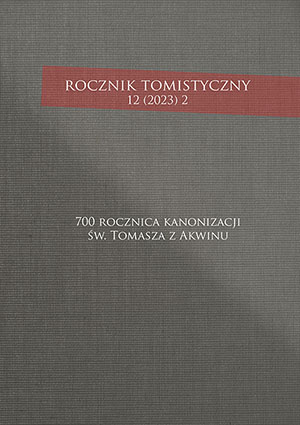Realizacja zadań edukacyjnych i wychowawczych przez nauczyciela filozofii w szkole średniej
Implementation of educational and upbringing tasks by a philosophy teacher in a secondary school
Author(s): Ewa Agnieszka PicholaSubject(s): School education, Sociology of Education, Philosophy of Education, Pedagogy
Published by: Naukowe Towarzystwo Tomistyczne
Keywords: philosophy; rational thinking; teacher; nurturing; education; secondary school;
Summary/Abstract: In her book titled Filozofia wychowania. Filozofia jako podstawa wykształcenia ogólnego w szkole średniej, [Philosophy of Upbringing. Philosophy as Fundament for General Education in Secondary School] Agnieszka Gondek shows that philosophy, or the propedeutics of philosophy, can positively contribute to the process of education and nurturing of youth in a contemporary school at the secondary level. In the four chapters its Author consequently supports her view that philosophy is the systematic study which provides criteria for reasonable thinking, and what follows, is indispensable for developing both intellectual and moral skills of young learners. The book offers a wide analysis of sources. Its starting point, the chapter one, are materials of scholars gathered in the Lwów- Warsaw philosophical school [Polish: szkoła lwowsko-warszawska], worked out in Poland within a period of the twenties and thirties of the twentieth century. Their common aim was to show that encounter with philosophy, understood as the rational school of thinking, should be considered as an indispensable intellectual tool in the process of teaching. Philosophy, through its concepts and principles, enables to fundamental skills such as critical thinking, ability to analyse, assess and comparing sources, formulating conclusions, expressing ideas, taking part in a debate, recognizing evidence, searching for reasons, relevance and precision. In the second chapter, whose concern is the propedeutics of philosophy, there are methods for the efficient teaching exposed. Also, in this context the responsibilities of teachers are discussed, as it is them whose professional attitude can train students to facilitate philosophy properly. The third chapter, concerning the philosophical education in the Polish secondary school after the systemic transformation in 1989, continues the topic of the role and shape of teaching philosophy, including the need for professional teachers. The fourth chapter presents the issue of correlation. According to the Author, consistency of philosophy with the school subjects help recognize the complexity of the issues and enable methodical consideration of knowledge as a whole. The book proves that philosophical methods can contribute to the overall development of young people. By doing philosophy they learn to think and perform rationally, communicate effectively, and what is no less important, act in a wise manner.
Journal: Rocznik Tomistyczny
- Issue Year: 2/2023
- Issue No: 12
- Page Range: 387-394
- Page Count: 8
- Language: Polish

